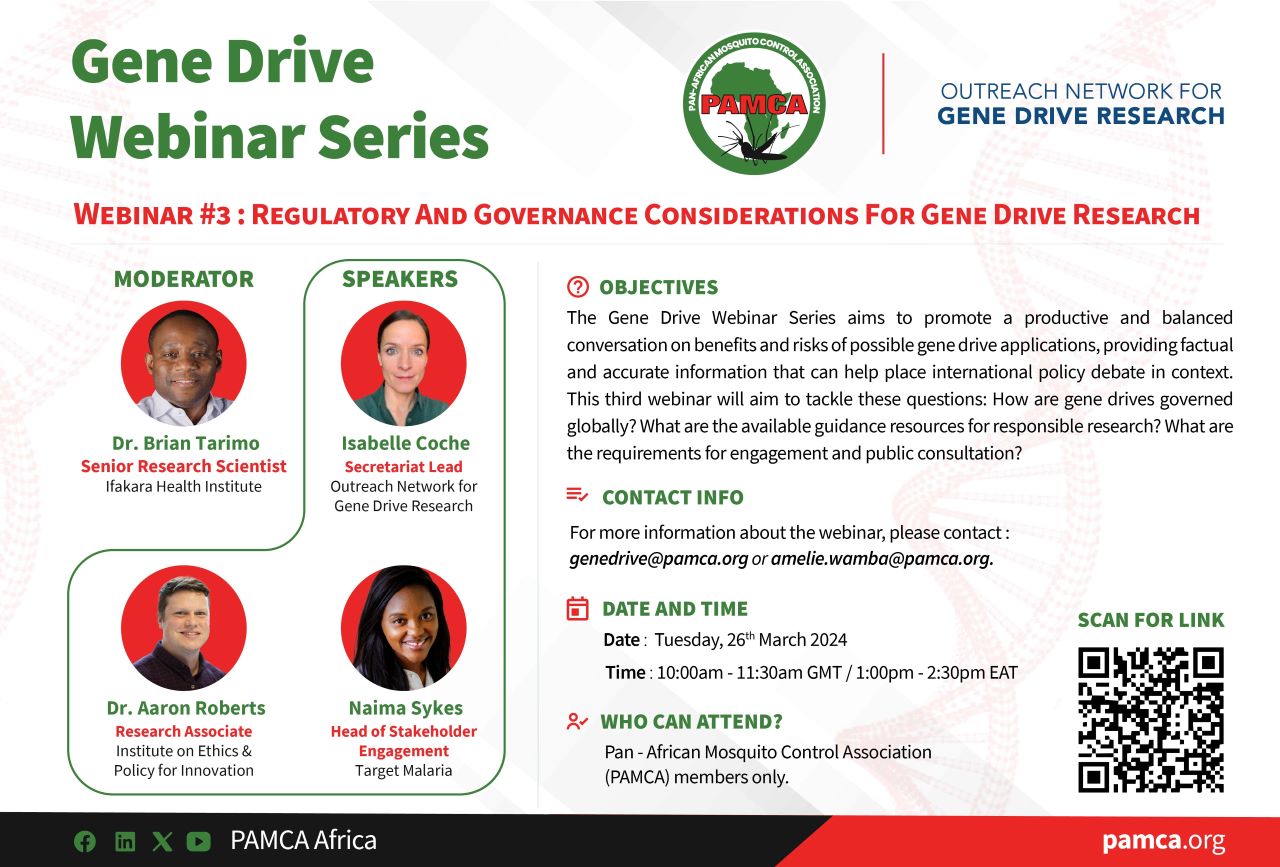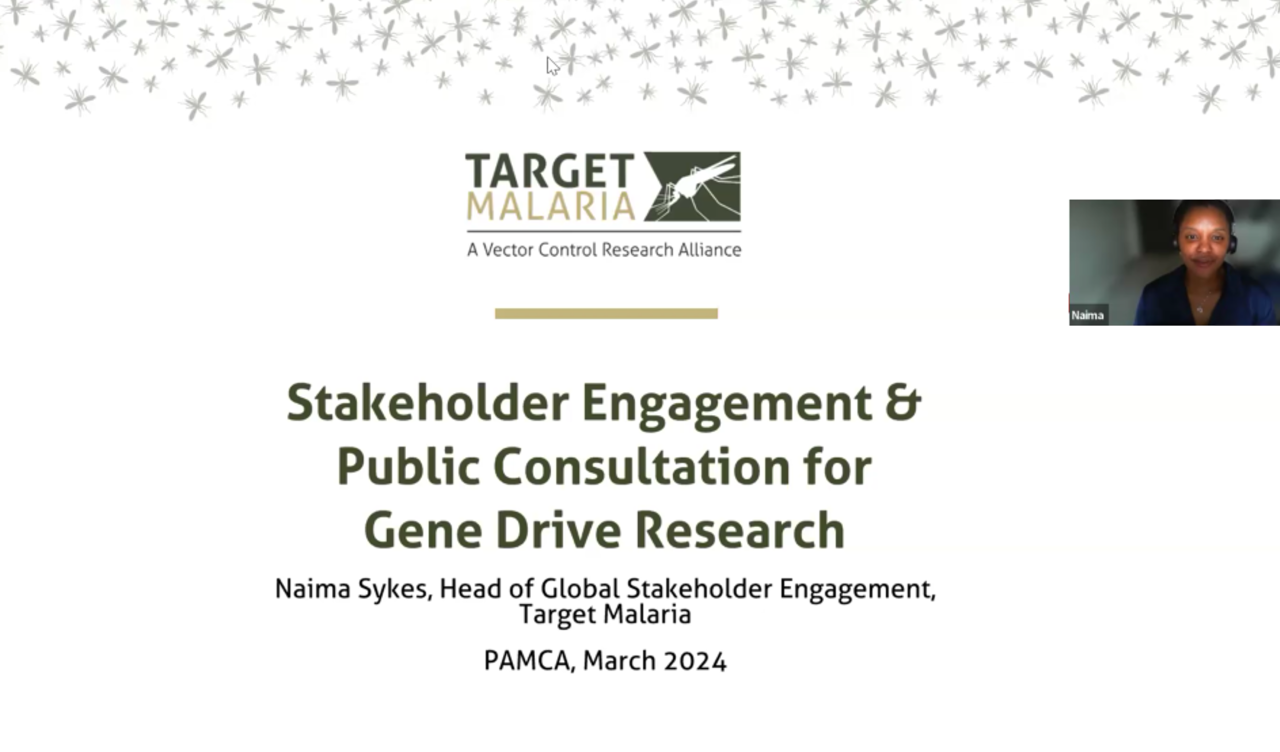The third and last webinar of the Gene Drive Webinar Series organized by the Pan-African Mosquito Control Association (PAMCA) and the Outreach Network for Gene Drive Research took place last week, marking the conclusion of an in-depth exploration into gene drive technology, its current applications, as well as the various efforts underway to ensure research is carried out responsibly. In this last session, which I had the honor of moderating, we delved into the topic of regulatory and governance considerations for gene drive research.

The session began with a presentation by Isabelle Coche, Secretariat lead of the Outreach Network for Gene Drive Research. Her presentation explored the regulatory and policy frameworks that govern gene drive research at the global level. She explained how governance for new technologies is not unique to gene drive technology and that there is not a monolithic set of rules for gene drive technologies but rather a selection of guidance, legislations and regulations that together form an ecosystem. Her presentation touched on guidance relevant to gene drive research issued by international organizations such as the UN Convention on Biological Diversity (CBD) and the World Health Organization (WHO).
Next, Dr. Aaron Roberts, Research Associate at the Institute on Ethics & Policy for Innovation (IEPI) at McMaster University, offered an overview of the scope of different publications that practitioners in the field of gene drive research can draw upon to inform best practices and ethical research. These include national-level guidance, regional guidance as well as international guidance such as the WHO’s 2021 Guidance Framework for testing of genetically modified mosquitoes. He also touched on guidance available in scholarly literature as well as platforms that gather and share relevant resources such as GeneConvene Global Collaborative’s Virtual Institute.

Naima Sykes, Target Malaria, providing insights into stakeholder engagement and public consultation for gene drive research
Finally, Naima Sykes, Head of Stakeholder Engagement at Target Malaria, highlighted the importance of stakeholder engagement and public consultation to inform responsible and ethical gene drive research. She shared some of the working definitions used by the gene drive research community, gave an overview of different types of engagement activities, and delved into the specificities of engagement for gene drive research and particularly into Target Malaria’s stakeholder engagement strategy. She ended her talk by emphasizing that gene drive technology is not a silver bullet and that we will need a comprehensive malaria control toolbox to be able to eliminate the disease.
It was a pleasure to moderate this session exploring the regulatory and governance considerations surrounding gene drive research and underscoring the importance of public consultation and stakeholder engagement in shaping research pathways and practices. The potential applications and impacts of gene drive technologies are a topic of growing interest. Open and informed dialogue is imperative to provide factual and accurate information that can help stakeholders navigate the complexities of this field.
